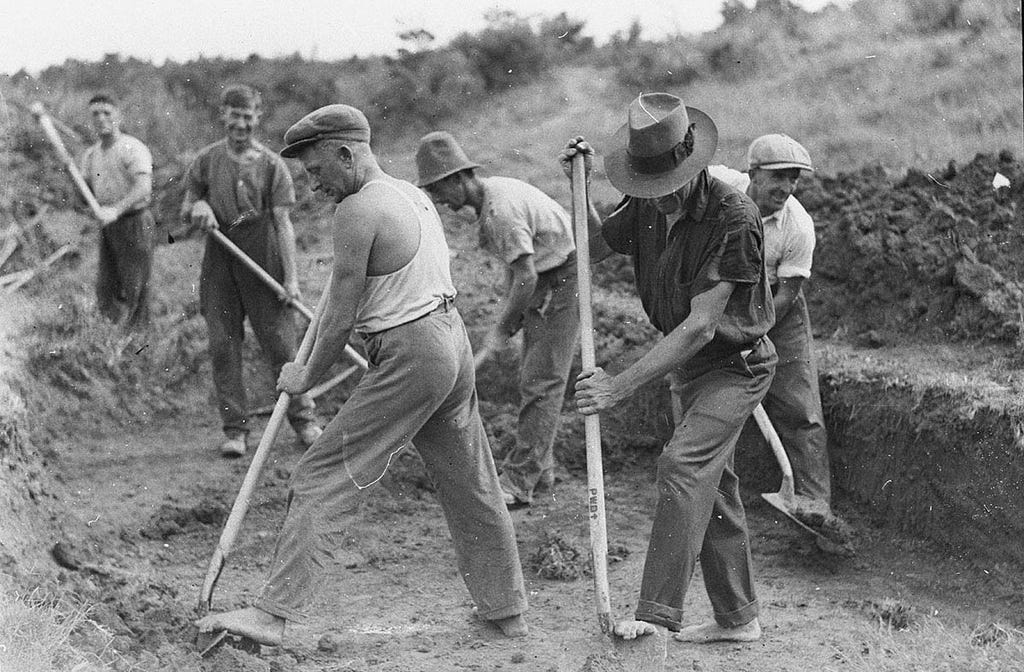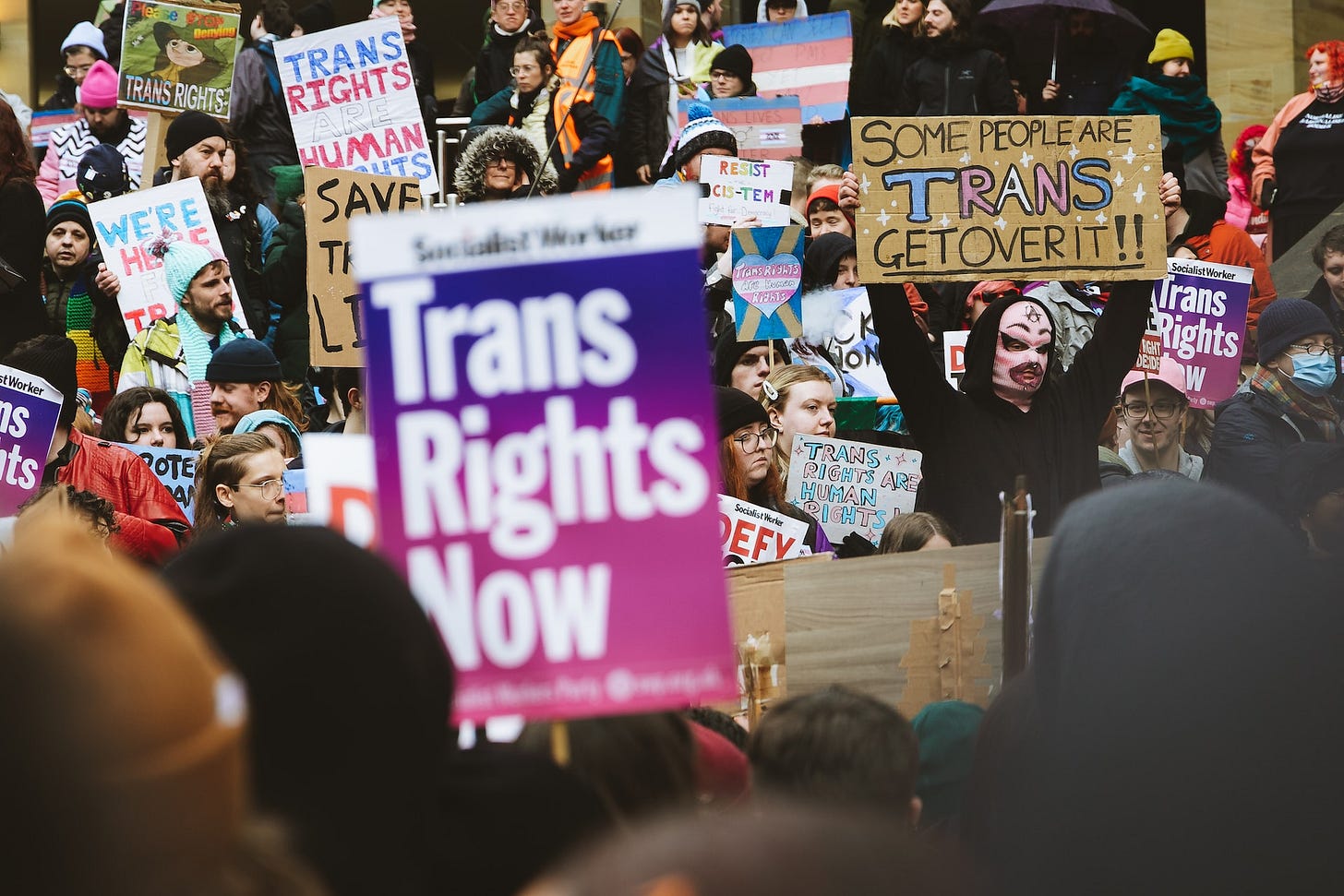The Cycle of Strength and Weakness: Unraveling the Times We Live In
“Hard times create strong men. Strong men create good times. Good times create weak men. And, weak men create hard times.”
In the ever-evolving landscape of human history, the quote "Hard times create strong men. Strong men create good times. Good times create weak men. And, weak men create hard times" has maintained its resonance. This adage highlights the cyclical nature of human experience, revealing how the struggles and triumphs of one generation inevitably give rise to the next generation's character. As we examine the current state of the Western world, one cannot help but wonder whether we are indeed witnessing the era of weak men leading us into hard times, as evidenced by the rise of wokeism, victimhood culture, and complacency.
The sentiment behind the quote underscores the notion that adversity shapes character. When faced with hardship, individuals must summon the strength, resilience, and resourcefulness required to overcome the obstacles they encounter. These strong men, forged in the fires of tribulation, establish the foundations for prosperous and stable societies.
The Great Depression of the 1930s and global conflicts of the 20th century, including the two devastating World Wars, serve as prime examples of periods that demanded grit, determination, and resilience from the individuals of the time. These hard times forged a generation of strong men and women who survived not only severe economic hardship, losing jobs, homes, and livelihoods, but also exhibited tremendous bravery, resourcefulness, and resilience in the face of global adversity. Driven to rebuild and create a better future, their efforts culminated in the post-World War II boom, an era marked by widespread prosperity and optimism.
Looking back further in history, we can identify similar patterns. For example, the Roman Empire experienced a period of great prosperity and expansion under the leadership of strong and capable men, such as Julius Caesar and Augustus. However, complacency and decadence set in as the empire grew wealthier and more powerful, leading to weak and ineffective rulers like Nero and Caligula. This decline in leadership contributed to the eventual collapse of the Roman Empire and the onset of the Dark Ages, a period of immense hardship and struggle for the people of Europe.
In Britain, the establishment of the British Empire emerged from the chaos and devastation of the English Civil War, a time of great hardship for the people of Britain. Strong leaders like Oliver Cromwell and, later, the restored monarchy under Charles II helped to establish the foundations of the empire. However, as the empire expanded and prospered, complacency and overindulgence began to take root. This ultimately led to the decline of the British Empire, as colonies sought independence and the nation grappled with economic and social challenges.
As the cycle perpetuates throughout history, the rebirth of prosperity and stability inevitably fosters an environment where individuals can flourish without encountering the same hardships faced by previous generations. Unfortunately, this sense of comfort and abundance often leads to the gradual erosion of the values, skills, and resilience that were once indispensable for overcoming adversity. Over time, these qualities may be relegated to the sidelines, considered less important or even obsolete. Consequently, the subsequent generation might be inadequately prepared to confront the inevitable challenges that arise within any society. Lacking the same fortitude and resourcefulness, they may struggle to effectively navigate the complexities and uncertainties of an ever-changing world, leaving them vulnerable when the pendulum of history swings back towards difficult times.
As we survey the landscape of the modern Western world, there is a growing sense that we have once again entered the phase of "weak men." This weakness is not a reflection of physical prowess or power but rather a moral and ideological frailty. The rise of wokeism, victimhood culture, and complacency represents a departure from the values that once defined our society: individualism, self-reliance, and personal responsibility.
The pervasive contemporary culture of wokeism, characterised by a hyper-awareness of social issues and a fervent desire for radical change, has noble intentions in pursuing social justice and equality. However, its insistence on uncompromising adherence to a specific worldview leads to extreme consequences. Wokeism fosters an environment in which individuals are reduced to their immutable characteristics, such as race or gender, exacerbating existing social tensions and undermining the complexity and uniqueness of the human experience. This quest for moral purity and ideological conformity stifles debate, suppresses dissent, and gives rise to cancel culture, de-platforming, and censorship. Such trends result in dissenting voices being silenced, ostracised, or even fired from their jobs. This erosion of free speech weakens the intellectual foundation of a strong society and hampers the ability to address and solve complex problems.
The rise of victimhood culture further exacerbates this problem. In a society where personal responsibility is undervalued and sometimes even discouraged, individuals are increasingly inclined to blame external factors for their challenges and shortcomings. This shift in mindset promotes a narrative where individuals are not agents of their own destiny but rather passive victims of circumstance. Consequently, people become more inclined to seek solace in group identities, further amplifying divisions and fostering resentment. Rather than encouraging resilience and self-improvement, victimhood culture often perpetuates a cycle of dependency and helplessness, undermining the potential for genuine progress and growth.
A creeping complacency also characterises this current cultural shift. As the struggles of previous generations become distant memories, many individuals in the modern Western world are shielded from the harsh realities that once shaped the human experience. This insulation fosters a sense of entitlement and a belief that the comforts and privileges enjoyed today are immutable, leading to a lack of appreciation for the sacrifices made by those who came before. This complacency can manifest in various ways, from disinterest in civic engagement and a growing reliance on government, to a disregard for the importance of maintaining the values and principles that have contributed to societal progress. As we become more disconnected from the struggles of the past, we seem to have forgotten the importance of self-reliance, personal responsibility, and the entrepreneurial spirit that once drove our societies to greatness.
The convergence of wokeism, victimhood culture, and complacency has created a society ill-equipped to face the challenges of the 21st century. The erosion of the values that once underpinned our societies has led to an environment where collective resilience and unity are increasingly scarce. We must recognise that the cycle of human experience is not linear and that the progress we have made can be reversed if we fail to heed the lessons of history.
To break this cycle and mitigate the consequences of weak men creating hard times, we must rekindle the values and principles that have historically allowed us to overcome adversity. This requires a renewed emphasis on individualism, self-reliance, and personal responsibility. We must empower individuals to be agents of their own destinies, fostering an environment where they can grow and develop the skills necessary to confront life's challenges.
Moreover, we must foster a culture of open discussion and respectful disagreement, where individuals feel free to express their opinions and engage in productive debate. This requires a commitment to intellectual diversity and a willingness to engage with ideas that may challenge our own assumptions and beliefs.
Education plays a vital role in this endeavour, as it can help cultivate the critical thinking skills and historical awareness required to navigate a complex and rapidly changing world. Regrettably, today's educational landscape often prioritises group identity, sexuality, political issues, and the importance of one's "feelings" over all else. By refocusing on providing students with a comprehensive understanding of history and its cycles, we can instead equip them with the tools to recognise and confront the forces that threaten to undermine our societies. Furthermore, this shift in educational priorities will help foster a generation of resilient, informed individuals capable of engaging in thoughtful discussions and addressing complex challenges.
The quote, "Hard times create strong men. Strong men create good times. Good times create weak men. And, weak men create hard times", serves as a stark reminder of the cyclical nature of human experience. As we navigate the current era, marked by the rise of wokeism, victimhood culture, and complacency, we must recognise that the values and principles that once guided us have not lost their relevance.
In conclusion, the challenge we face is not insurmountable. By acknowledging the present state of our society and embracing the lessons of history, we can shape a future where strong men and women rise to confront adversity and build a more resilient, prosperous, and unified world. However, this endeavour requires courage, intellectual humility, and a willingness to engage with diverse perspectives and ideas. If we rise to this challenge, we can break the cycle and ensure that the legacy we leave for future generations is one of strength, not weakness.





